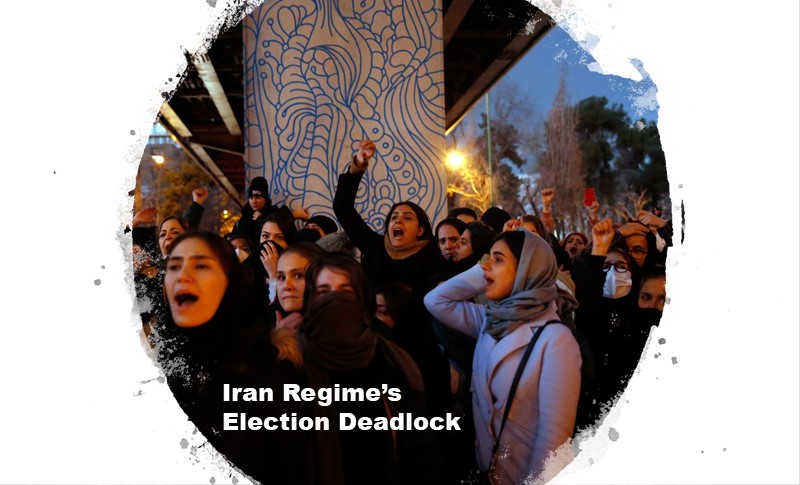Just a month away from the Iranian Regime’s sham presidential election, the ruling mullahs must still nominate serious candidates.
The leaked audio of the regime’s foreign minister Mohammad Javad Zarif has added fuel to the fire of internal factions infighting. In a seven-hour interview, Zarif acknowledges that the Islamic Revolutionary Guard Corps (IRGC) dominates foreign and domestic policies.
“The audiotape has led to polarization in both the establishment and the society. This can lead to social confrontation,” the state-run IRNA news agency wrote on 29 April.
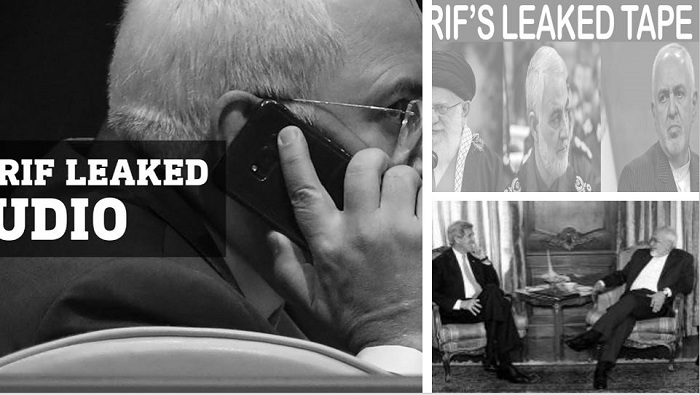
“Political polarization will result in social gaps that turn in the radicalism in the society,” according to the Vatan-e Emrouz daily on 27 April.
Vatan-e Emrouz also warned about the powder keg nature of Iranian society. “The Iranian society is in unique circumstances. Public discontent, increasing economic pressure on the society’s middle and lower strata can lead to passivity (non-participation), or even in some cases, radical action (urban riots),” the article adds.
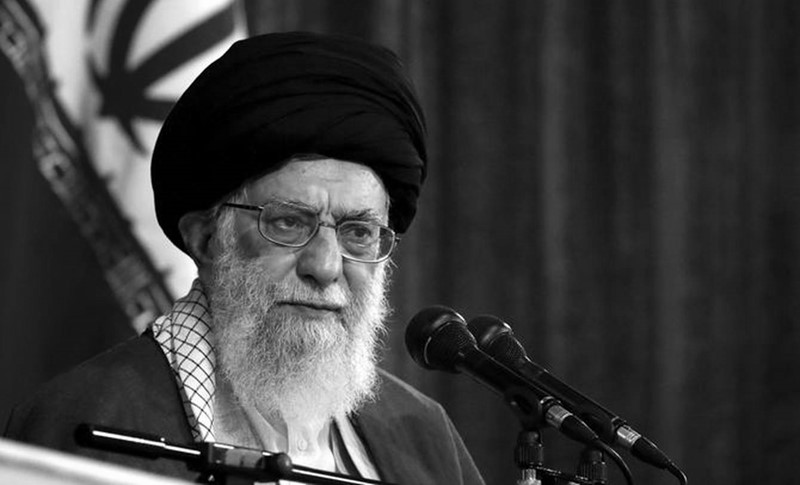
Khamenei’s desired candidate seems to be the current Judiciary Chief Ebrahim Raisi. In an unprecedented measure, more than 220 members of the Majlis (affiliated with Khamenei) set out an open letter calling for Raisi to announce his candidacy.
In previous elections, the Guardian Council rejected multiple officially announced candidates, allowing only those who approved my Khamani to run. This time the regime has disqualified many even before their official candidacy.
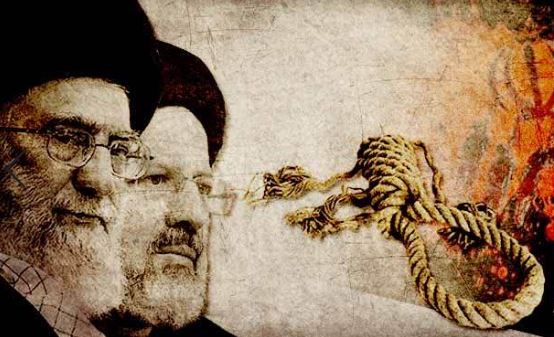
One obvious example of this policy is the disqualification of the grandson of the regime’s found, Hassan Khomeini of the so-called ‘reformist party’. The so-called reformist currently has yet to publicly back anybody, there is a concern of measures by the Guardian Council that oversees the qualification of election candidates. All 12 of the Council were appointed by Khamenei, directly or indirectly.
There are many from both regime’s factions that have announced their candidacy, such as former IRGC commander Mohsen Rezai, former Defence Minister and senior IRGC official Hossein Dehghan, former head of the IRGC’s Khatam Al-Anbiya garrison Saeed Mohammad, former Oil Minister and senior IRGC official Rostam Ghassemi, and former Interior Minister Mostafa Tajzadeh. According to experts and state-run media, however, none of these are adequately capable of dealing with the regimes escalating crises.
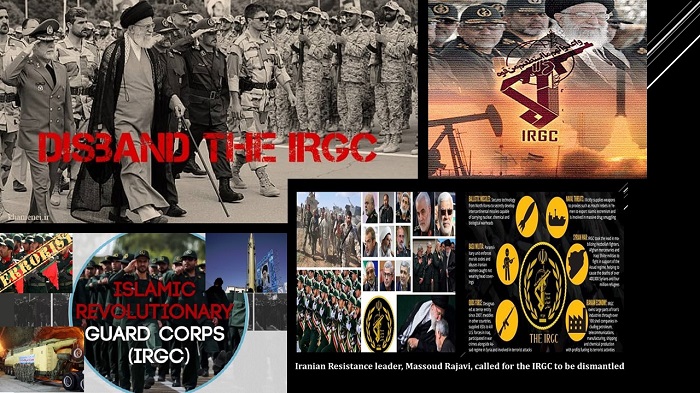
The regime is amid multiple domestic and international crises, from US sanctions, high inflation, widespread social unrest, and a younger society of 85 million with more than 80% of those living under the poverty line.
“We have seen no justice and we will not vote!”, is a common protest chant from investors of the stock market, pensioners, nurses, farmers, and workers, all of whom are dissatisfied with their current situation.
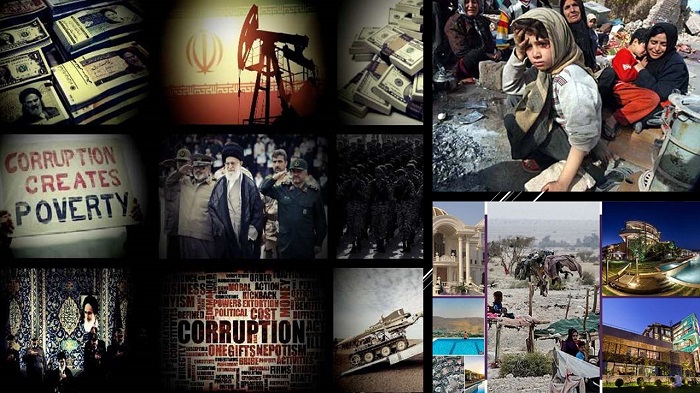
Supporters of the opposition, the People’s Mojahedin Organisation of Iran (PMOI / MEK Iran) have been campaigning nationwide for an electoral boycott. Such efforts have received widespread support. In April, MEK resistance Units have organized campaigns daily in more than 250 areas across the provinces.
It seems to have become clear that there are no free and fair elections in Iran under the mullah’s regime. Khamenei continues to seek a “hezbollahi” president with “jihadi performance to eliminate rivals by preventing them from running. Whether he can control the power struggled remains to be seen, or whether the chaos and social uproar seen following the 2009 election with rear its head.
The campaign to “boycott of the mullahs’ sham elections” has turned into a nationwide, unstoppable movement.
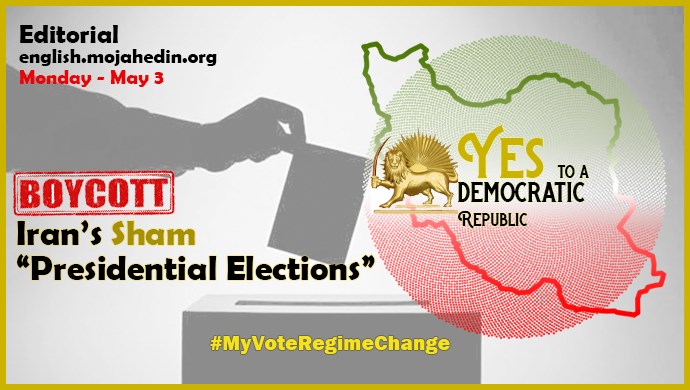
MEK Iran (follow us on Twitter and Facebook)
and People’s Mojahedin Organization of Iran – MEK IRAN – YouTube


